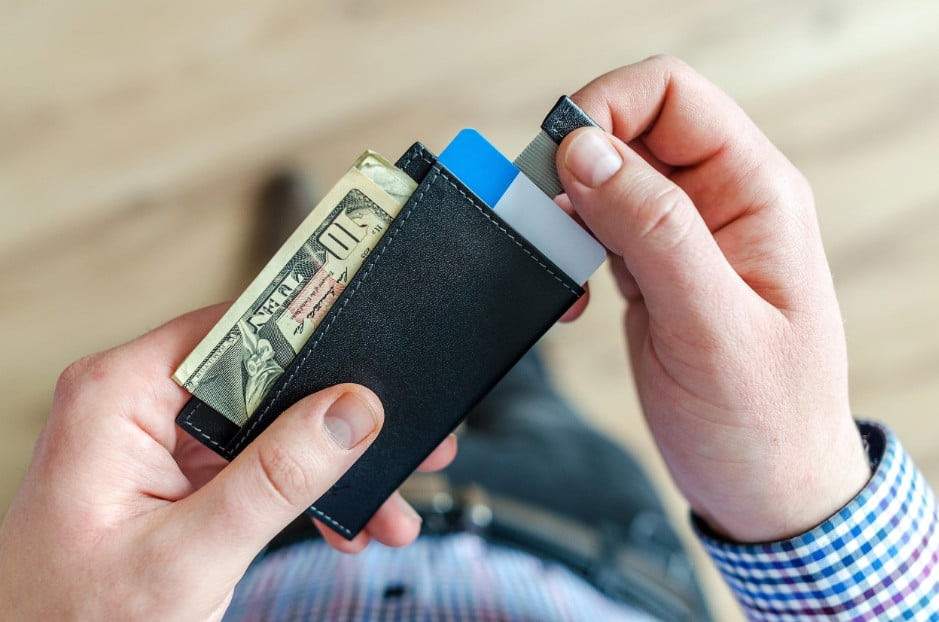The ability to hold and transact currency without cash or banking is one of the sleekest developments of our time. Surprisingly though, E-wallets have been revolutionizing ecommerce for some time. In 1997 Coca-Cola kicked things off with a vending machine in Helsinki, Finland which accepted payment via text message. So, it’s reasonable to assume that the Finnish will be buying sodas via telepathy and drinking them via Bluetooth in 2023. But for the slowpokes in the rest of the world we had to wait for PayPal to be born…
Yes, the technology was developed over twenty years ago by this century’s Thomas Edison according to CNBC. Yeah right, how many items on that list detail his involvement beyond a funding and managing capacity? I’m looking at you, cheerleaders of the electric car and the “green” rocket. But still, lacking a definitive “genius” invention such as, ahem, the freaking light bulb, the man maybe had a hand in developing E-wallets when he co-founded PayPal with Confinity. Seriously though CNBC, compare the number of bulbs in the studio to the number of 1982 ‘Blastar’ games next time you want to align those photos.
Anyway, the sheer convenience and implication of future independence from the slow churning bureaucracy of the banking system was irresistible. Beenz and Floonz attempted a similar approach but by creating their own currency to boot. This arguably nodded in the direction of genius, but the world was not ready and they folded in the early 2000s. It took the full fledging of tech genius: blockchain security, to make exclusively digital currencies acceptable. PayPal was not the company to offer ‘wallets’ though, that one goes to Google with their Google wallet that eventually integrated with Gmail and was then mimicked by Apple Pay. Aside from attaching money to emails the technology was not new, just the name. The next revolutionary step would be storing the wallet’s contents in the cloud, making the possibilities for quantity and application endless.
So, how many people actually use e-wallets? This year the number has reached almost 2.7 billion. China has been ahead of the curve accounting for the world’s core users, and that is reflected in their high number today. The country clocked 904 million users in 2021. These numbers are not just down to the convenience of speed and the pandemic’s obvious congruence with minimal human contact. No, companies around the world have developed all kinds of nuanced systems and features to compete with each other and accommodate the diversity of international markets. Globalisation is a chief organ of fintech, after all.
Kenya’s M-Pesa (2007 by Vodafone and Safari.com) is a phone-based system that allows users to pay via text, their normal number being the wallet’s identity. Those in less economically developed countries account for a large portion of the world’s 1.7 billion people who do not have access to a bank account. By relieving users of having to hold quantities of fiat, and the potential dangers that come with that in certain areas, users can spend with security. Not to mention the ability to text money over a distance, granting access to the wider financial ecosystem to those previously excluded.
China’s ahead of the curve in innovations too, with WeChat being the user’s wallet. Wechat is known as their Eastern WhatsApp and it offers A LOT more. Wechatters can invest in stocks, order groceries, financial advice, and insurance. Revolut, in the UK, is currently mimicking.
I wonder which app (‘What’ or ‘We’) is easiest for the Eastern and Western authorities to use for spying on their respective peoples. My digits are on China, but I wouldn’t place a bet without consulting Ed Snowden first. Speaking of betting, the E-wallet revolution extends to iGaming, which you have likely heard is in full bloom. I have hit jackpots in previous years only to have to wait hours and even days to withdraw winnings. By placing bets with an E-wallet, withdrawal is instant, check out this list of the best PayPal casinos to make sure you won’t be waiting for your potential winnings.
E wallets have safe locations for their servers holding all the client’s data. If a transfer fails then the digits could end up in the ether with no middleman to retrieve them, so it’s important to find a wallet you trust. The compromise of cash’s anonymity is probably worth it but PayPal, Facebook’s Diem, Google + gang owe us. They design the technology and assure security so they get the benefit of amassing huge amounts of value to play with. Fair enough. But the digital footprint is unavoidable with E-wallets (unless you are dealing with crypto of course) and that’s free marketing gold we give them. I wonder if there will ever be e-wallets or fintech companies that apply some kind of interest or discounts calculated by how much data they harvest. Just a thought! Spend well, folks.





